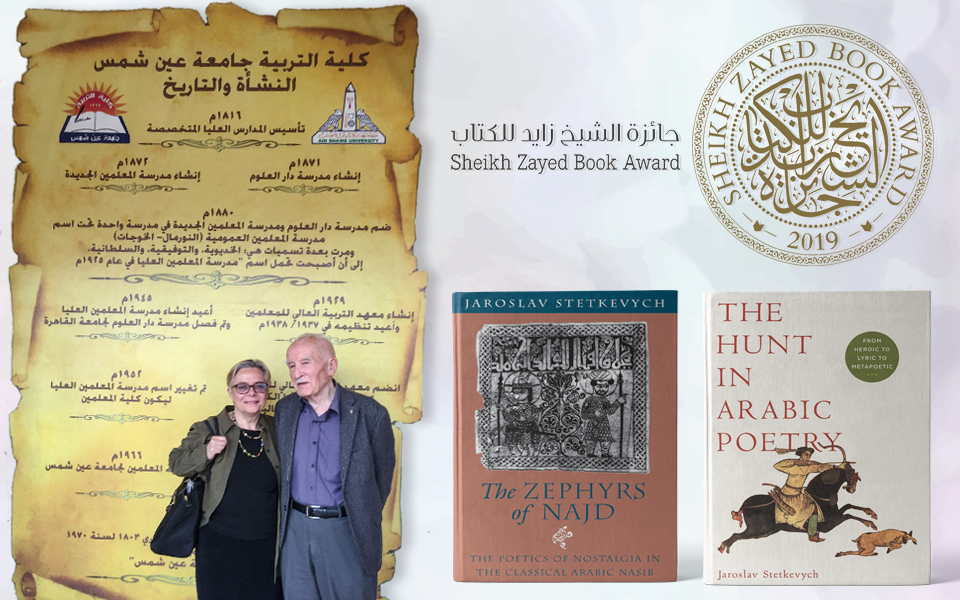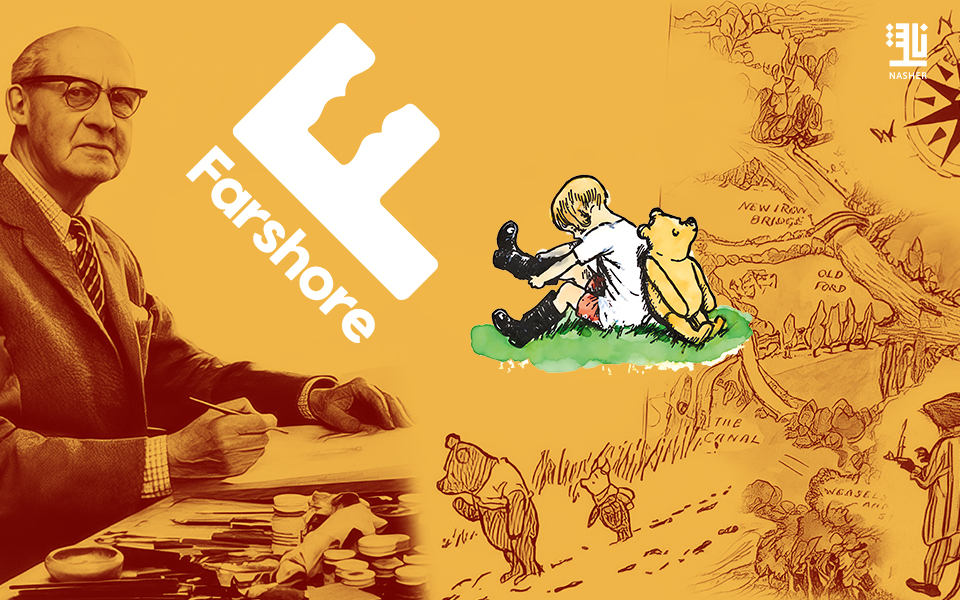Professors Jaroslav Stetkevych and Suzanne Stetkevych have been named as the winners of the 2019 Cultural Personality of the Year Award at the 13th edition of the Sheikh Zayed Book Award.
The duo will receive their award at the prize winners’ ceremony held at Louvre Abu Dhabi Auditorium Plaza on 25th April, which will take place during Abu Dhabi International Book Fair.
“Through enlightening Western audiences about Arabic culture, the Stetkevyches have enriched the global perspectives of our people and traditions,” said Mohamed Khalifa Al Mubarak, Chairman of the Department of Culture and Tourism – Abu Dhabi (DCT Abu Dhabi) and Deputy Chairman of the Sheikh Zayed Book Award Board of Trustees. “The authors’ new methodologies focus on how Western scholars should read Arab literature, tackling orientalist takes on Arabic poetry. The Stetkevyches’ research portrays Arabic culture as one that is marked with compassion and tolerance.”
In bestowing the honor of Cultural Personality of the Year, Dr. Ali Bin Tamim, Secretary General of the Sheikh Zayed Book Award, said: “The Stetkevyches have made a distinguished and unparalleled contribution to Arab culture and literature in the English language, and the positive impact their research has had on Arabic culture cannot be overstated.
“There have been numerous examples of Arabic families whose members have been prolific in promoting cultural projects, such as the Timur family in Egypt and the Bustani family in Lebanon. Arabic poetry has consistently seen several families rise in prominence due to their literary talents, a phenomenon which had almost disappeared in the modern era, until the Sheikh Zayed Book Award reinstated the Arabic tradition that focus largely on the importance of family by awarding this honour to the Stetkevyches.”
Arabic poetry is the central focus of the couple’s research, concentrating on this complex art form that contains numerous metaphors and linguistic tools to convey a diverse range of cultural content. The Stetkevyches’ work presents a series of key studies that demonstrate the authors’ comprehensive knowledge of Arab literature. Additionally, their work displays a critical understanding of poetry which underscores the very essence of Arabic poetic rhetoric.
Jaroslav Stetkevych is Professor Emeritus of Arabic Literature at the Department of Near Eastern Languages and Civilizations at the University of Chicago and a Research Associate in the Department of Arabic and Islamic Studies at Georgetown University, Washington DC. He received his PhD in Arabic Literature from Harvard University in 1962.
His seminal works include ‘The Zephyrs of Najd: The Poetics of Nostalgia in The Classical Arabic Nasib’, which details the development of the literary Arabic language, as well as focusing on poetry in Arabic music.
Professor Jaroslav Stetkevych considers Arabic poetry to be lyrical in essence. He said, “Focusing on classical Arabic poetry, it was clear that nostalgia was the consistent and dominant theme throughout. Poetry often deals with feelings of sadness and loss, and a longing for deeper meaning.
“I realised that Arabic music had slowly evolved to become negative in character and I found myself wondering whether the very essence of an Arab’s soul was negative, filled with a kind of despair and inability to work. However on closer examination this is simply not the case. Arabic poetry is simply nostalgic and strives to find the secret to salvation rather than submit to a life of despair.”
In his book ‘Muhammad and the Golden Bough’, which took him 20 years to write, Stetkevych tried to access the vague origins of Arab history, and instead landed upon the actual history of Arabic tribes, particularly the tribe of Thamud. Stetkevych reconstructed and analysed the tribe’s stories through his own reading. He presented the story of the Thamud as one of the major tales of Arab culture, from its earliest moments right through to the modern day.
Professor Suzanne Stetkevych is the Sultan Qaboos bin Said Professor of Arabic and Islamic Studies and Chair of the Department of Arabic and Islamic Studies at Georgetown University in Washington DC. She is also the Ruth N. Halls Emeritus Professor of Near Eastern Languages and Cultures at Indiana University, USA. She is the Executive Editor of Brill Studies in Middle East Literatures and sits on the board of the Journal of Arabic Literature.
Suzanne Stetkevych obtained a PhD from the University of Chicago in 1981, and is known for her important works on Arabic classical poetry from the pre-Islamic era to the neo-classical periods, which have been published in both English and Arabic. She has written several books, including ‘Abu Tammam and the Poetics of the Abbasid Age’.
In her work, she explores Arabic poetry since the Abbasid age, and her study of Abu Tammam serves as a starting point for understanding the poetry and aesthetics of that era. The book sheds light on Abu Tammam’s life, his poetic innovation and refutation of opposing views. The work focuses first on the Arabic critical tradition, followed by the poetry of Abu Tammam and finally examines selected works of the poet from his collection Al Hamasa.
A significant number of both the Stetkevyches’ works have been translated into Arabic, highlighting the considerable impact their work has had in generating creative interaction between Arab and non-Arab cultures.
The winner of the Cultural Personality of the Year award receives a prize of AED1 million, a gold medal bearing the emblem of the Sheikh Zayed Book Award and a certificate of appreciation.







